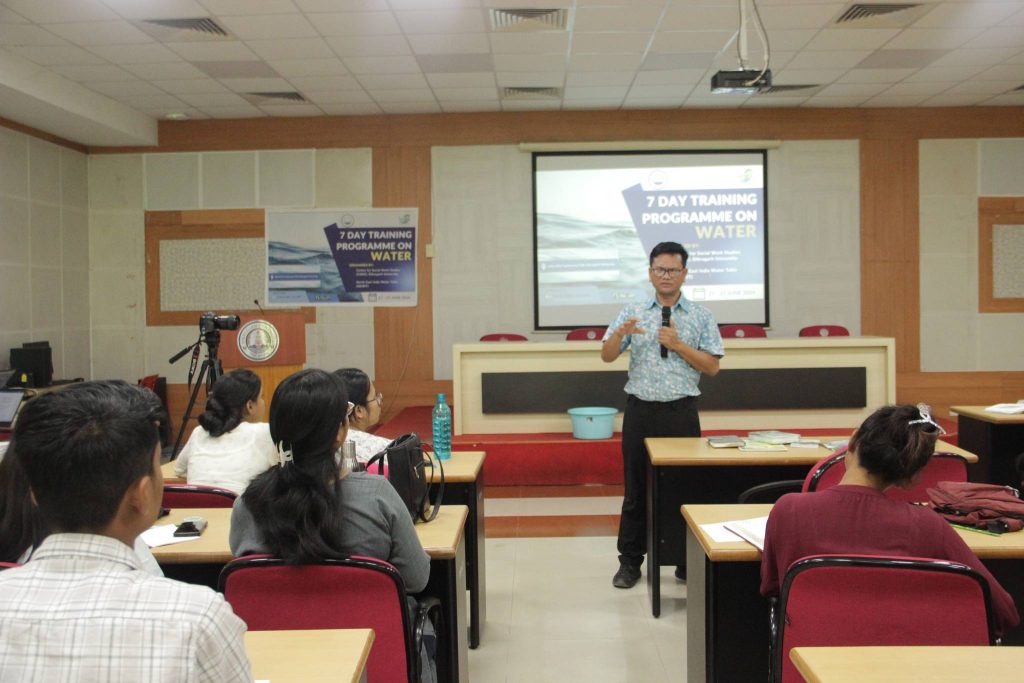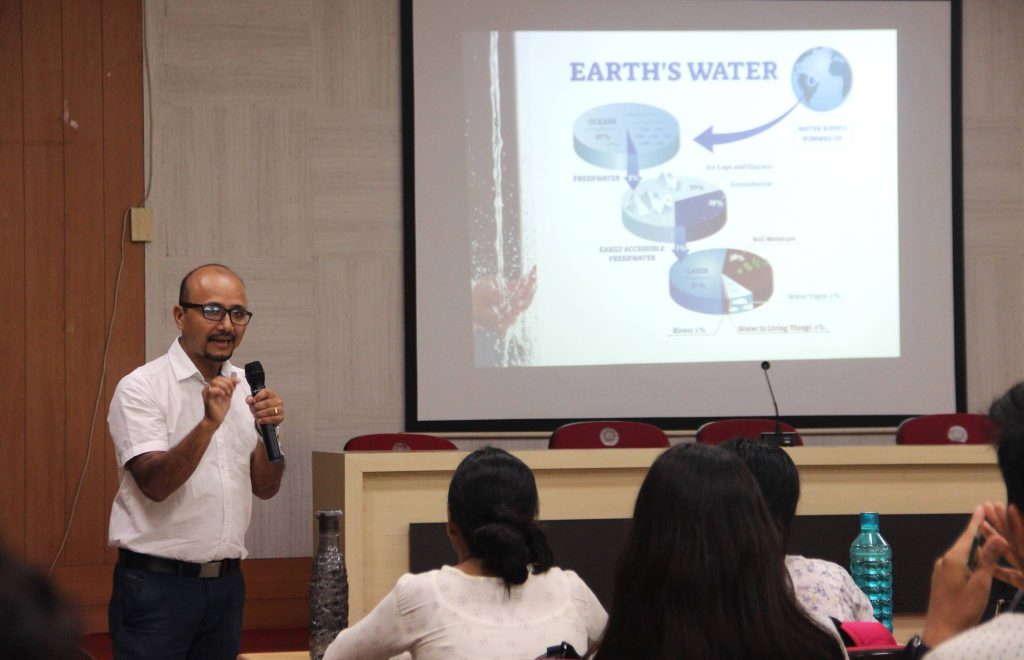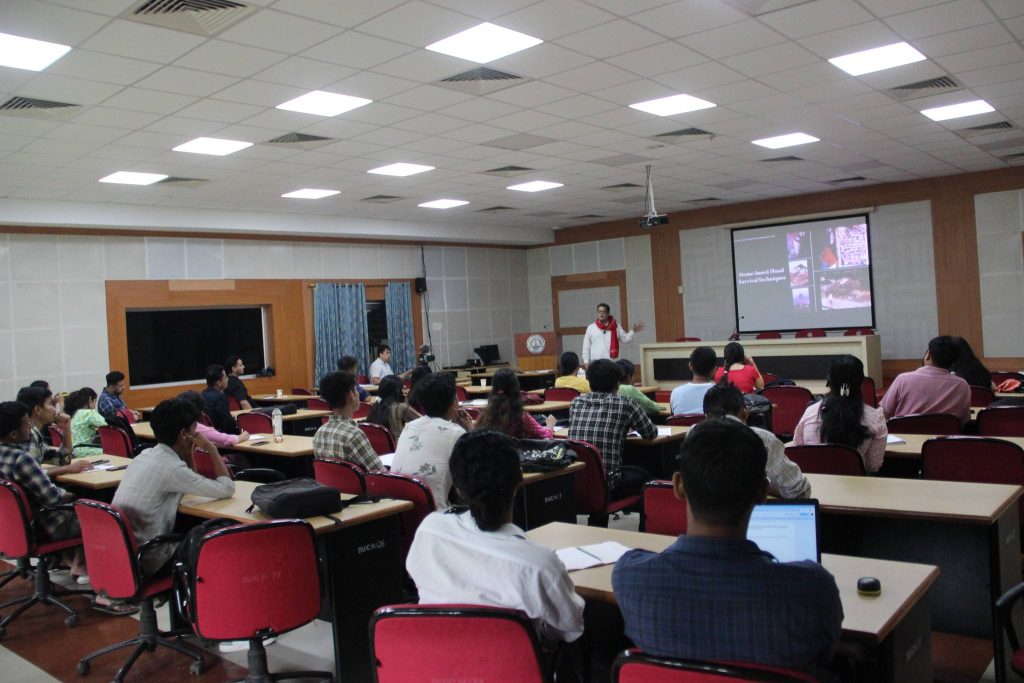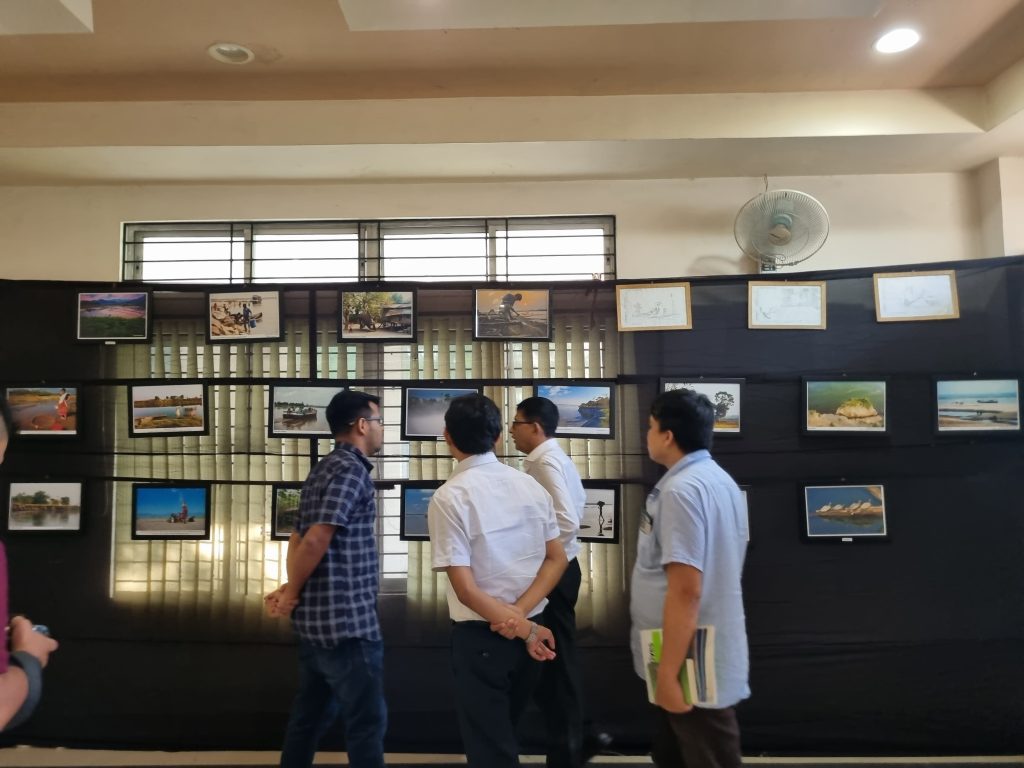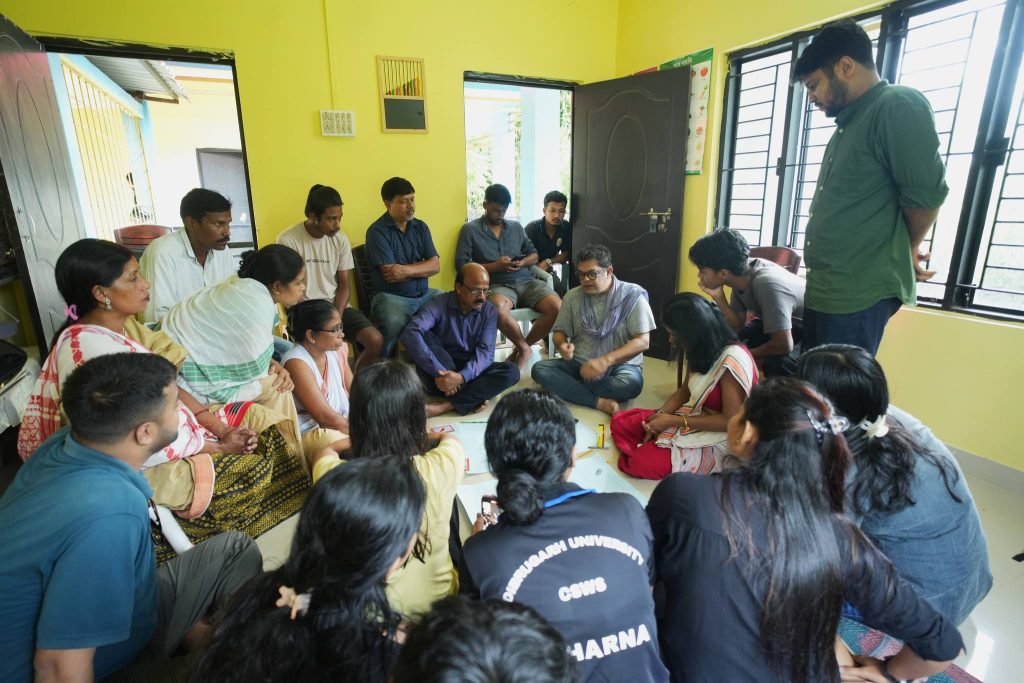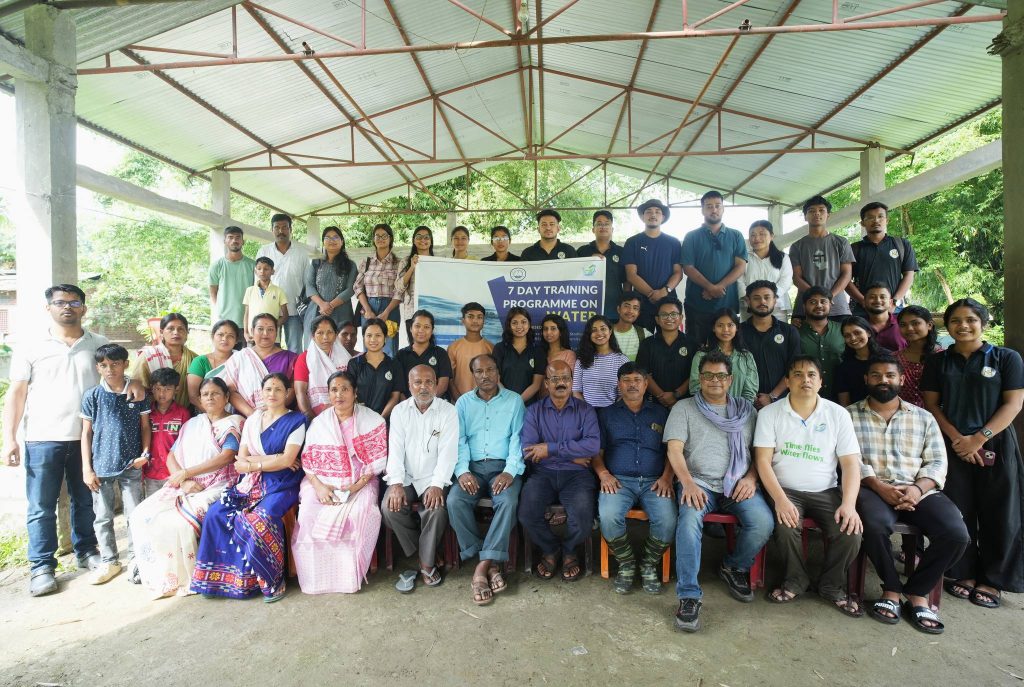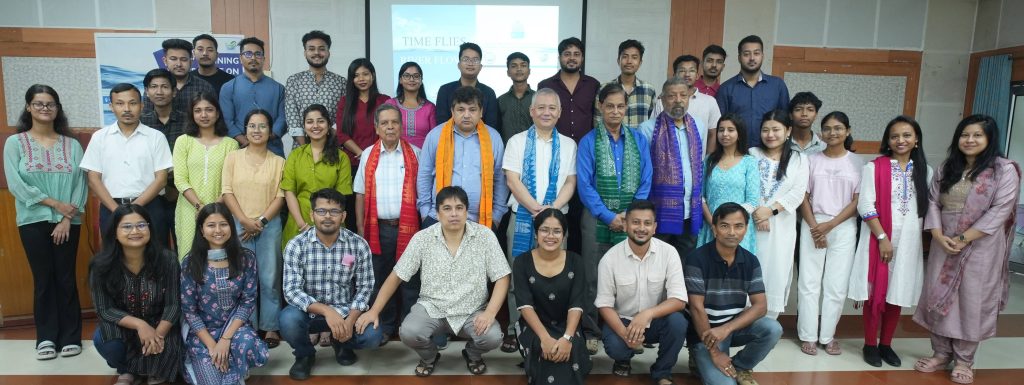The Centre for Social Work Studies (CSWS) at Dibrugarh University, in collaboration with North-East India Water Talks (NEIWT), successfully concluded a seven-day training programme on water. Held from June 21 to June 27, 2024, at the Indira Miri Conference Hall, the event attracted a diverse group of scholars, researchers, MSW students, and civil society representatives. The programme was supported by the North-East Affected Area Development Society (NEADS) and Heinrich Böll Stiftung – Delhi Regional Office.
The training programme commenced with a warm welcome by Dr. Monuj Dutta, Assistant Professor of CSWS and the coordinator of the training programme, followed by a background address from K. K. Chatradhara of NEIWT. The session featured the University Anthem performed by CSWS students. Prof. Jiten Hazarika, Vice-Chancellor of Dibrugarh University, inaugurated the event, emphasizing the importance of collaborative efforts in addressing water-related challenges. Prof. Prabal Saikia, Chief Scientist at Assam Agricultural University-Zonal Research Station, North Lakhimpur, invoked the Assamese proverb “Praniye Pranir Pran” (water is life) to underscore the critical role of water governance. Dr. Ranjan K. Panda, Convenor of Water Initiatives India and known as the Water Man of Odisha, delivered a keynote speech on the varying implications of water across different regions and generations.
Dr. Surajit Konwer, Assistant Professor of Chemistry at Dibrugarh University, presented on “Groundwater: Historical Perspectives, Current Challenges, and Future Prospects,” highlighting issues such as groundwater depletion and water-borne diseases. Dr. Shreemoyee Bordoloi from MDKG College discussed arsenic contamination and introduced the “Arsiron Nilogon” purification method. Mr. Ramananda Wangheirakpam, Director of Indigenous Prospective, Manipur, emphasized the importance of documenting water stories from various regions.
Prof. Chandan Kr. Sarma discussed “Understanding River Historiography” and the evolving history of river ecosystems. Parag Jyoti Saikia, a researcher at the University of North Carolina, Chapel Hill, USA, presented virtually on “Water Infrastructures: Thinking beyond Technology.” Dr. Ranjita Bania highlighted the challenges faced by women in water-related livelihoods, and Dr. Gopal Krishna, Former Director & Vice-Chancellor, ICAR CIFE, Mumbai, facilitated a participatory discussion on water ecosystems. Mr. Luit Goswami, Director of the Rural Volunteers Centre (RVC), discussed the role of voluntary organizations in water-induced disaster management, sharing his experiences of working with grassroots communities.
On the fourth day of the training programme, participants conducted a field visit to various areas along the Brahmaputra River, engaging with local communities to understand the impact of floods and erosion. They utilized Participatory Rural Appraisal (PRA) tools to discuss historical significance and current challenges.
Prof. Joydeep Baruah from Krishna Kanta Handique State Open University started the fifth day with a presentation on the water market. Eklavya Prasad, founder of Megh Pyne Abhiyan from Jharkhand, shared insights from his 20-year journey in water management, stressing the importance of community dynamics and innovative purification methods.
Dr. Kaustabh Deka highlighted the socio-political implications of river ecosystems. Dr. Partha Jyoti Das, Professor of Practice at Dibrugarh University, discussed climate change challenges, and Prof. S. P. Biswas, a retired professor of Dibrugarh University, focused on the aquatic biodiversity of the Upper Brahmaputra Basin. Dr. Priyanka Sharma of Dibrugarh University explained the political economy of water. An interactive session with renowned social workers like Mr. Mrinal Gohain from ActionAid Association, Mr. Ravindranath from RVC, Mr. Girin Chetia from NEADS, and Prof. S. P. Biswas emphasized traditional knowledge and sustainability.
A cultural evening was held on the penultimate evening of the training programme, moderated by Dr. Pranjal Burhagohain, Assistant Professor of Dibrugarh University. Participants performed various water-related items, including songs, dances, stories, drama, and poem recitations.
The final day featured a reflection on NEIWT’s journey by K. K. Chatradhara. The closing session, moderated by Dr. Ansai Bathou Basumatary, included feedback and suggestions for future initiatives. Certificates were distributed to participants, and the event concluded with the State song of Assam. Dr. Monuj Dutta offered the vote of thanks.
The seven-day programme highlighted the importance of water management and the need for collaborative, interdisciplinary approaches to address the region’s water challenges.
